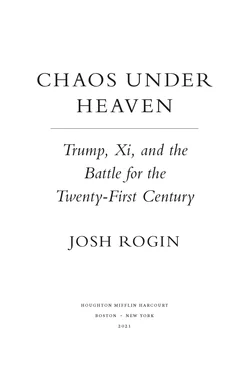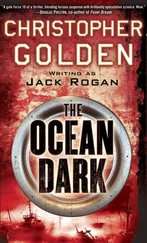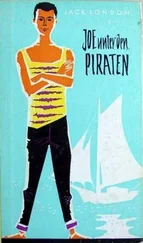“It’s a whole-of-society effort that Beijing is trying to mobilize,” Mattis told the group. “This comes from the party. It’s what the party does. And the question is how do we deal with this intrusive effort.”
The primary goal of Beijing’s campaign was to promote the interests of the CCP and protect the party from criticism, much less resistance, from the United States or any other country. The second goal of this campaign, which served the first, was to undermine American institutions and, in so doing, weaken American democracy.
Of course, the idea that China conducted influence operations inside the United States was not itself a secret. But Washington, along with most of the country, was slow to realize the sheer scope and scale of this new challenge. Sure, there were signs Washington was waking up. A bill introduction here, a think tank event there. It was akin to different members of a symphony orchestra arriving for a concert one by one. Many key instruments were still missing. There was no agreed-upon sheet music. And there was no conductor.
Mattis was doing what everybody in the Bingo Club knew needed to be done. He was doing what the US government should have been doing. He was bringing together the best minds to devise a plan to fight back. It was a conversation our leaders could not (yet) have in public.
“This is the right place to think, what are the policy problems that we are trying to solve,” he said. “And then, thinking what do we need.”
As each person in the room took turns telling tales of pernicious Chinese influence operations they had witnessed or heard stories about, the group began to realize how far behind the United States really was. These included the stories of Chinese students at American universities who were prevented from having a free and full experience by the interference of China’s official missions or the monitoring of their fellow students. I heard of federal investigations into members of Congress suspected of taking donations linked to CCP front organizations. I heard about Chinese government security officers coming into the United States and kidnapping Chinese citizens off the street to take back to China, sometimes with the help of local police.
One of the first problems the group grappled with was how to talk about Chinese influence operations to others in government and around the country. How can anyone expect the American people to sign up to fight a threat they didn’t even realize existed and don’t necessarily understand? The Bingo Club’s consensus answer was that American institutions and the American people needed to be educated about this threat, and fast—hence my invitation.
The CCP sought to frame the issue, whenever it was raised, as a form of McCarthyism or Cold War reductionism, with China playing the victim. The CCP sought to divide Americans by party or ethnicity, to divert attention from its actions. Somehow, the China issue had to be protected from the bitter bipartisanship that engulfed every other major debate in Washington. “This is an American issue. This is something that should unite us,” one Bingo Club member put it. “This is not something that we should use as a political baton to beat the other side. It’s that important.”
Most of Washington had come around to the acknowledgment that the strategic competition between the United States and China would be the most important dynamic in foreign relations for the foreseeable future. But they hadn’t yet been able to comprehend that this competition is being waged first of all inside our own country. “This is happening on our watch,” another Bingo Club member said. “We can’t leave this mess to our kids and our grandkids. This is our time to stand.”
Over the next months and years, I witnessed this group of young, patriotic Americans work together to combat CCP influence operations in various ways. Sometimes I wrote columns about their successes for the Washington Post. Some of their stories are told here for the first time. Some of their successes can never be written about. Liu told me she started the group because she had given up on the older generation of China hands, who were too set in their ways. She set upon convincing the younger generation that the United States needed to change its China policy, before it’s too late.
“I used my kitchen to slowly build a community by feeding them. Good food and good conversation was an old-fashioned salon approach, popular in the eighteenth century, and it is still going,” she said. “You build it with one person at a time, until you have a community that can share knowledge. Peter was my first convert.”
One day, not long after this meeting, I got a call from an Asia expert friend who previously worked in the military but now consulted for the private sector. He was holding his own secret meeting to bring together like-minded Washington folks to think through a separate probtem emanating from China—the giant national champion technology firm Huawei. In less than a decade, this company had lied, cheated, and stolen its way to threatening domination over mobile networks around the world. This group wanted to strategize a way to stop it.
It dawned on me that my Bingo Club was quickly becoming only one of many. I heard of a group meeting quietly at Stanford University to examine Chinese influence operations, organized by the Asia Society. Another group was convened at the Council on Foreign Relations. Bingo Clubs were suddenly popping up everywhere.
Breaking into Mar-a-Lago
A lot of what the Bingo Club members did, both at the meetings and in between them, was to share information to try to piece together the CCP’s network of shadowy front groups it uses for influence and intelligence operations of all kinds on our soil. Roughly a year after I attended my first Bingo Club meeting, for instance, a member of one of those groups was caught sneaking into Mar-a-Lago and was arrested with four cell phones, a laptop, a hard drive, nine USB drives, five SIM cards, and a device to detect hidden cameras. It didn’t take the Bingo Club members long to piece together who she was and how she fit into the network of Chinese influence operations on US soil. Her handler was a Chinese businessman known as Dr. Charles, who founded and runs something called the United Nations Chinese Friendship Association. His real name is Li Weitian, and he is a key figure in Chinese united front efforts to get close to top Republicans.
In a statement posted on Business Wire in 2012, the United Nations Chinese Friendship Association said it was founded in 2011 and that Charles Lee (Dr. Charles’s alias), the “Secretary General” of the group, immediately began holding meetings with dozens of high-level CCP officials, including You Lan, vice-director of the United Front Work Department. In addition to meeting with the likes of Trump and UN secretary general Antonio Guterres, Dr. Charles was offering tours of the US military academy and opportunities to meet President Obama, Warren Buffett, and lots of others. The Washington Post reported that his organization has no connection to the UN and when reporters went to the location it listed on its website, there was no office there.
There are united front groups connected to the Chinese government all over the United States; some are involved in politics. The Wall Street Journal reported that the group Chinese Americans for Trump, which was founded by a Chinese citizen green card holder named David Tian Wang, was approached by Chinese consulate officials and enlisted to help them lobby the Trump administration. Wang then registered himself as the head of a new consulting firm and used it to give $150,000 to the Trump Victory Fund. He later bragged on Chinese-language television that he has used his access to the Trump team to argue against confronting the Chinese government’s aggression in the South China Sea. He never registered under the Foreign Agents Registration Act as a lobbyist. This combination of influence peddling, fraud, and propaganda is a hallmark of united front work.
Читать дальше











